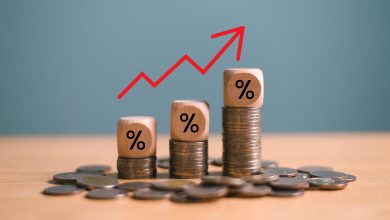The Invisible Negotiator: Exploring the Vital Role of the Broker in Modern Commerce

In the intricate web of global commerce, investment, and everyday transactions, one figure often works quietly behind the scenes to bring parties together, ensure fairness, and facilitate success—the broker. Though frequently overlooked, the broker plays a crucial role in shaping deals, navigating complexities, and guiding individuals and institutions toward informed decisions. Far from being a mere middleman, the broker is a strategist, a consultant, and often a trusted confidante.
This article takes a thoughtful and comprehensive look at the evolving world of brokerage, unpacking what brokers do, the industries they serve, the qualities that define a good broker, and why their role remains indispensable in today’s fast-paced, digitally driven economy.
Understanding the Essence of a Broker
At its heart, the word “broker” signifies a facilitator—someone who arranges transactions between two or more parties. However, this definition barely scratches the surface. Brokers don’t just connect buyers and sellers; they interpret market dynamics, offer strategic insights, and smooth out the friction that often arises when interests collide. Their expertise lies not only in knowing where opportunities exist but in aligning those opportunities with the precise needs of their clients.
A good broker is both analytical and personable, capable of decoding market signals while also nurturing trust. In many ways, the broker embodies a rare combination of industry savvy and human intuition.
Diverse Arenas: Where Brokers Make a Difference
The concept of brokerage spans far more than the confines of Wall Street or high-end real estate. Brokers operate across multiple sectors, each with its own distinct demands:
1. Financial Brokerage
Perhaps the most recognized form, financial brokers help individuals and institutions buy and sell stocks, bonds, mutual funds, and other investment products. They often serve as advisors, guiding clients through complex portfolios and volatile markets.
2. Real Estate Brokerage
Real estate brokers facilitate property transactions, representing buyers, sellers, or both. Unlike agents, brokers usually have additional certifications and can manage entire real estate firms. Their understanding of market trends, pricing strategies, and negotiation tactics can greatly influence the outcome of a property deal.
3. Insurance Brokerage
Insurance brokers assist clients in selecting the right insurance policies from a variety of providers. Unlike agents tied to one insurer, brokers act in the best interest of the buyer, offering impartial guidance on risk coverage.
4. Mortgage Brokerage
In the world of home financing, mortgage brokers help borrowers find competitive loan options by liaising with banks and lending institutions. Their role is to demystify complex lending terms and ensure affordability.
5. Freight and Shipping Brokers
These professionals connect shippers with transportation services, ensuring goods move efficiently across borders and continents. They manage logistics, compliance paperwork, and freight negotiations.
6. Commodity Brokers
Operating in high-stakes markets, commodity brokers trade in raw materials like oil, gold, and agricultural goods. Timing, precision, and market intelligence are essential in this domain.
The Qualities That Set Elite Brokers Apart
Not all brokers are created equal. While technology has democratized access to information and trading platforms, the human touch remains irreplaceable in high-stakes or nuanced transactions. The most successful brokers tend to exhibit certain key qualities:
-
Integrity: Trust is the foundation of every client relationship. Ethical brokers operate transparently and always place their clients’ interests first.
-
Expertise: Markets evolve constantly. Brokers must possess deep knowledge not only of current trends but also historical patterns and future projections.
-
Negotiation Skills: A skilled broker can extract better terms, navigate difficult discussions, and close deals that benefit all parties.
-
Discretion: Confidentiality is critical in sensitive deals, especially in real estate, mergers, or personal financial matters.
-
Communication: The ability to explain complex terms in plain language and keep clients informed every step of the way cannot be overstated.
The Ethical Dimension of Brokerage
Ethics play a central role in brokerage. A broker often operates with significant influence and access to sensitive financial or personal information. With that comes a moral obligation to act fairly, avoid conflicts of interest, and uphold professional standards. Regulatory bodies such as FINRA in the U.S., the FCA in the U.K., and similar institutions globally establish compliance frameworks to protect consumers. Still, ethical behavior must be self-regulated, guided by a broker’s internal compass as much as by external rules.
The finest brokers understand that reputation is their most valuable currency. One misstep—an undisclosed fee, a biased recommendation—can irreparably damage client trust and professional standing.
Technology’s Impact: Disruption or Enhancement?
The rise of digital platforms, algorithmic trading, and AI-driven analytics has sparked speculation about the broker’s continued relevance. Indeed, many low-value transactions have become fully automated, with users executing trades or comparing insurance quotes independently.
Yet, technology has not rendered brokers obsolete. Rather, it has elevated the standard. Today’s brokers must offer more than access—they must provide insight, interpretation, and foresight. While algorithms process data, brokers contextualize it. They understand nuance, navigate ambiguity, and build relationships—areas where machines still lag.
Furthermore, digital tools have empowered brokers to work more efficiently. Client management systems, market tracking software, and predictive modeling have enhanced their ability to serve clients with speed and precision.
When Should You Use a Broker?
There are many scenarios where a broker adds real value:
-
When navigating complex or high-value transactions: Whether buying a luxury home or investing a large sum, the stakes warrant expert guidance.
-
When time is a constraint: A broker can streamline the process, saving you time and effort.
-
When seeking access to insider opportunities: Brokers often have access to listings, offers, or deals not widely advertised.
-
When objectivity is needed: Emotions can cloud judgment, especially in personal financial decisions. Brokers offer detached, rational advice.
Looking Forward: The Broker in a Changing World
As commerce grows more global and sophisticated, the broker’s role continues to evolve. Specialization is becoming more common, with brokers focusing on niche markets or client segments. At the same time, a broader skill set is now expected: financial literacy, emotional intelligence, digital fluency, and ethical mindfulness.
The future broker may look less like a sales agent and more like a trusted advisor—part analyst, part consultant, part strategist. Those who can adapt, continue learning, and embrace both technology and human connection will thrive.
Final Reflection
In a marketplace brimming with information yet lacking clarity, brokers remain essential guides. They are the invisible negotiators behind closed doors, orchestrating agreements that shape financial futures, corporate successes, and personal milestones. Whether they operate on trading floors, in quiet offices, or via digital platforms, brokers hold one of the most dynamic and influential roles in commerce.
They are not simply facilitators of transactions—they are architects of trust, translators of complexity, and champions of opportunity. As long as commerce remains a human endeavor, the broker will have a seat at the table.



